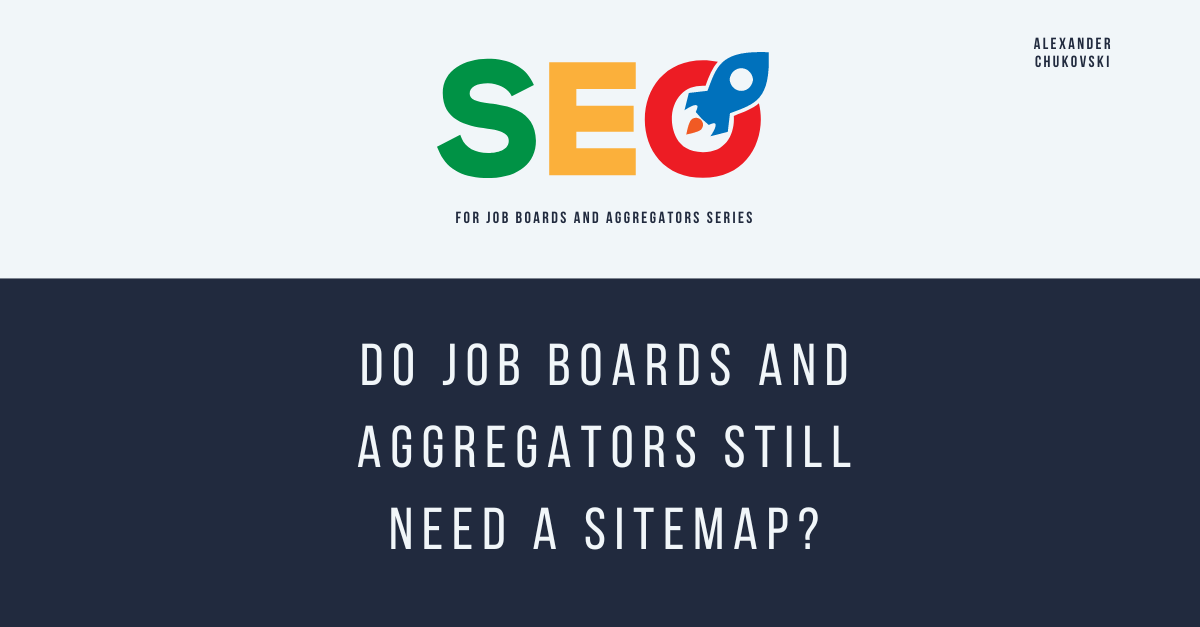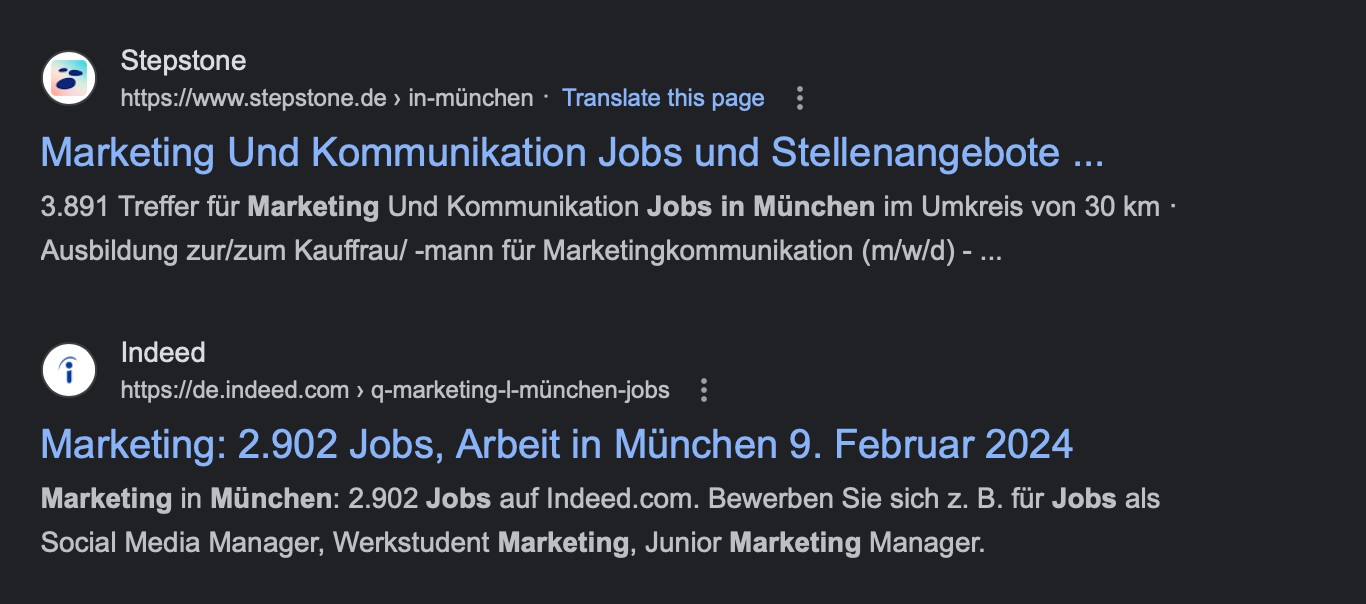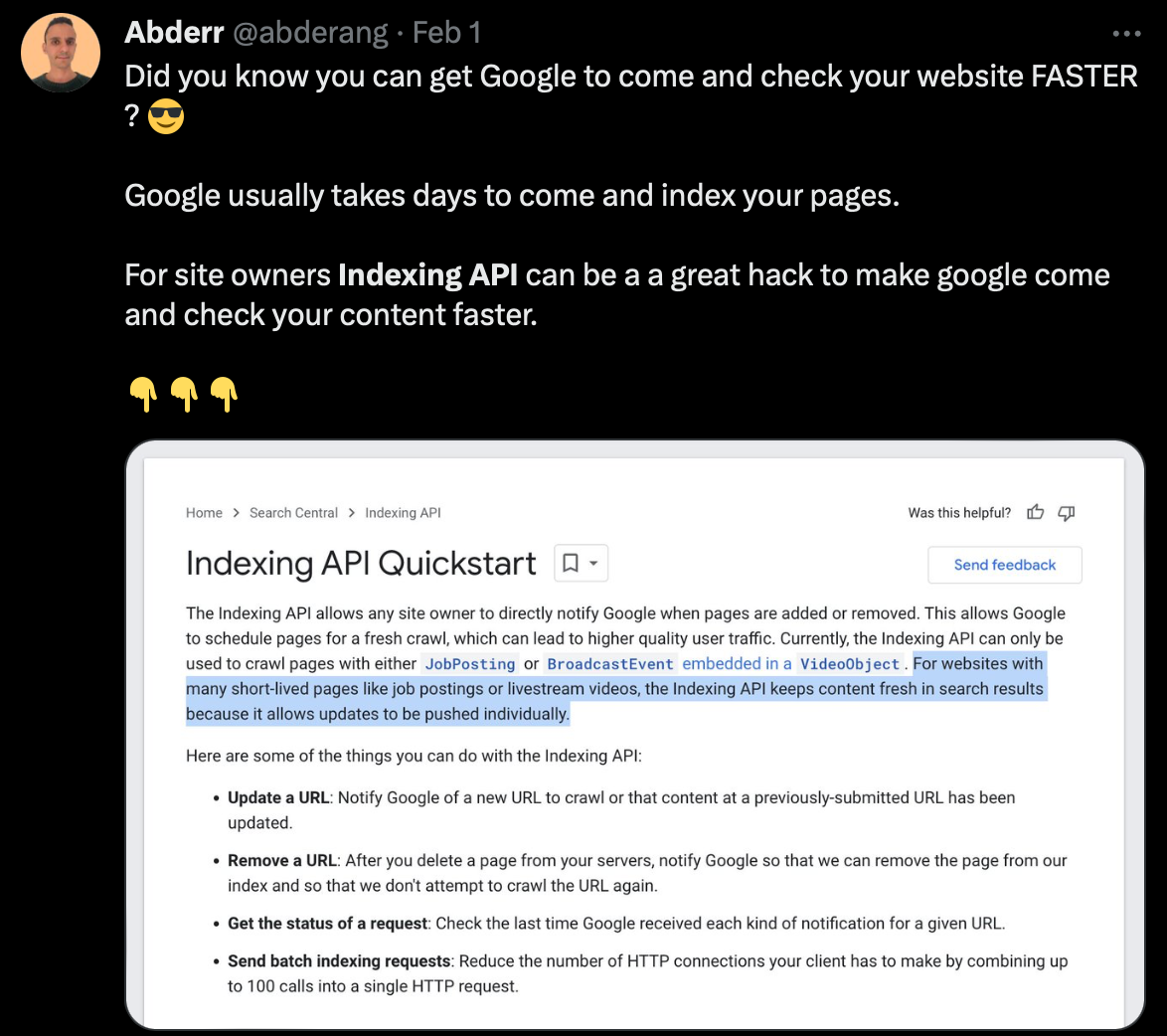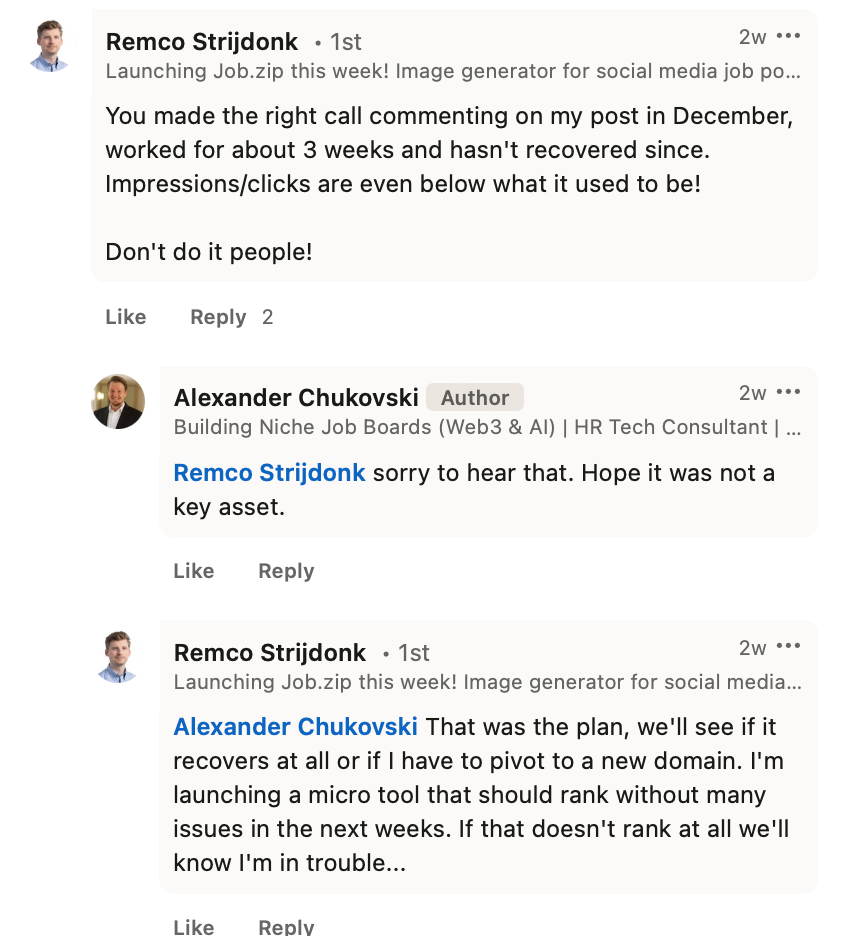Do job sites still need to a submit sitemap?
Understanding and utilizing all tools for Search Engine Optimization (SEO) is crucial for any website owner, especially those running job boards and aggregators.
Sitemaps are an essential tool in your SEO strategy, a roadmap of your website that guides search engines through your content, ensuring every page gets noticed in the vast ocean sites. With over five years of experience advising job boards on SEO and Google Jobs optimization, I've encountered a startling trend: many have no sitemaps!

A sitemap is not just a list of URLs; it's a strategic component of your website’s SEO framework. It acts like a blueprint that search engines like Google use to find and understand your site's structure and content. This is particularly important for complex sites like job boards and aggregators. The absence of a well-defined sitemap can be a significant problem for your site's ability to rank well on search engines.
In this post, I'll debunk four common arguments against the need for sitemaps and explain why, especially in the context of job boards and aggregators, overlooking this critical aspect of SEO can mean missing out on valuable traffic and visibility.
Argument one: I don’t need a sitemap; I already use the indexing API for my jobs!
As a job board or an aggregator, you have four types of pages you want to get indexed:
- Job ad pages
- Search result pages (I.e. domain.com/jobs/marketing-jobs-in-munich
- Content – your blog
- Programmatically created content pages - such as salary reports, job reports, etc.

Correct, the indexing API will get your jobs (hopefully) indexed, but what about the other three categories of pages? This is where you usually submit a sitemap so that Google can find them.
Here is where I have heard the second argument:
Argument two: But I use the Indexing API to submit ALL my pages for indexing to Google!
I have seen many influencers on Twitter SEO advocating for this.

Here are the facts. This API is intended primarily for job posting URLs and live-streaming videos. Using it for other types of content could be seen as a misuse of the service, potentially violating Google's guidelines.
Some SEO influencers advocate for this method, claiming it leads to faster indexing and a competitive edge. However, these claims might be biased, as they often come from those promoting their tools or benefiting from affiliate links and lack rigorous testing. I also highlight the issue of selection bias on social platforms like Twitter, where success stories are more likely to be shared.
Typically, you will see an increase in traffic, then a dip, and no recovery for an extended period. Here is Remco Strijdonk, who tried this hack early in December.

You can follow the discussion on Linkedin:

This leads me to caution against these "SEO Hacks." I argue that while it's essential to explore new techniques in SEO, shortcuts often don't work in the long run, similar to the fleeting success of AI-generated content, which can lead to penalties and restrictions
Argument three: I don’t need a sitemap; my page is structured well enough.
Search engines like Google can still index a site without a sitemap, especially if it's smaller, well-structured, and has good internal and external links. If we follow this logic, a sitemap is beneficial and recommended; it's not a strict requirement for indexing.
However, job boards are rarely minor, well-architected, and all pages are easily discoverable.
Most job boards and aggregators are home-grown solutions with an awful site structure that has evolved over the past ten years. Chances are Google will only be able to discover some of your pages.
As a job board owner with a complex site with many pages, submitting a GOOD sitemap is highly recommended for effective SEO. Otherwise, you risk having some pages being overlooked or not indexed as quickly.
Argument four: I don’t need a sitemap - Google does not care about sitemaps.
This one is just straight wrong.
Do you need proof? I have proof:

This page was updated just a few weeks ago, adding this sentence. There is a reason for this.
Conclusion: Job Sites still need a sitemap for SEO
In conclusion, do not underestimate the significance of sitemaps in the SEO strategy for job boards and aggregators. While modern search engines and site structures have evolved, the foundational role of a well-crafted sitemap remains pivotal in ensuring comprehensive indexing and optimal online visibility.
Remember, a sitemap isn't just about aiding search engines; it's about maximizing the potential of your website to reach the broadest possible audience. Having complex structures and a dynamic nature, job boards particularly benefit from this practice. Dismissing the importance of sitemaps based on common misconceptions can lead to missed opportunities and suboptimal search engine performance.
